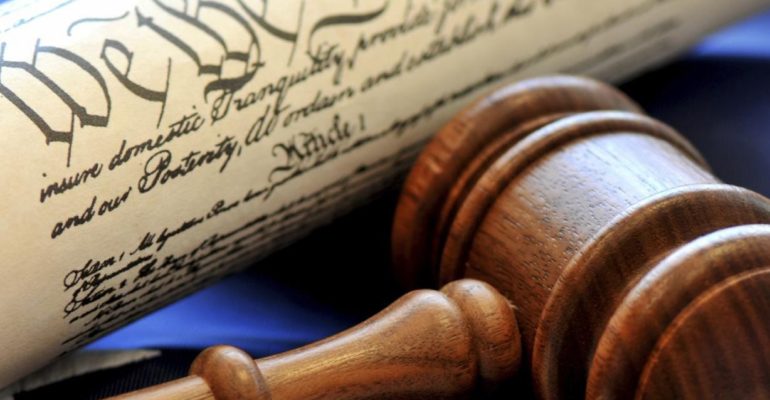 The Supreme Court yesterday narrowed the scope of judicial review of proceedings before the Patent Trial and Appeal Board (PTAB) in Thryv, Inc. v. Click-to-Call Technologies, LP. Thryv had petitioned the PTAB to institute an IPR of Click-to-Call‘s patent. Thryv’s predecessor had been sued on that patent more than one year before filing the petition, but that decision was resolved and dismissed without prejudice. The PTAB concluded that complaints dismissed without prejudice do not count for purposes of the time bar, but the Federal Circuit threw out the PTAB’s decision, finding that Thryv’s petition was filed too late. However, in an opinion by Justice Ruth Bader Ginsburg, the Court disagreed with the Federal Circuit and held that the PTAB’s decision on whether a petition for inter partes review is timely is not judicially reviewable.
The Supreme Court yesterday narrowed the scope of judicial review of proceedings before the Patent Trial and Appeal Board (PTAB) in Thryv, Inc. v. Click-to-Call Technologies, LP. Thryv had petitioned the PTAB to institute an IPR of Click-to-Call‘s patent. Thryv’s predecessor had been sued on that patent more than one year before filing the petition, but that decision was resolved and dismissed without prejudice. The PTAB concluded that complaints dismissed without prejudice do not count for purposes of the time bar, but the Federal Circuit threw out the PTAB’s decision, finding that Thryv’s petition was filed too late. However, in an opinion by Justice Ruth Bader Ginsburg, the Court disagreed with the Federal Circuit and held that the PTAB’s decision on whether a petition for inter partes review is timely is not judicially reviewable.
The Supreme Court held that timeliness decisions fall within the bar on judicial review of an institution decision. The “time limitation is integral to, indeed a condition on, institution,” the Court held. Indeed, the relevant statute “expressly governs institution and nothing more.” Therefore, the Court concluded that a contention that the IPR petition was untimely “is a contention that the agency should have refused ‘to institute an inter partes review,’” and such a contention is not reviewable on appeal. That is so, the Court added, even if the PTAB also discusses the timeliness question in its eventual final written decision: “even labeled as an appeal from the final written decision, [an] attempt to overturn the [timeliness] ruling is still barred.”
Justice Neil Gorsuch, joined by Justice Sonia Sotomayor, dissented, writing that the majority’s holding “carries us another step down the road of ceding core judicial powers to agency officials and leaving the disposition of private rights and liberties to bureaucratic mercy.”
For more analysis on this case, Goodwin partner Willy Jay has provided a detailed review of this holding in this Goodwin alert.

